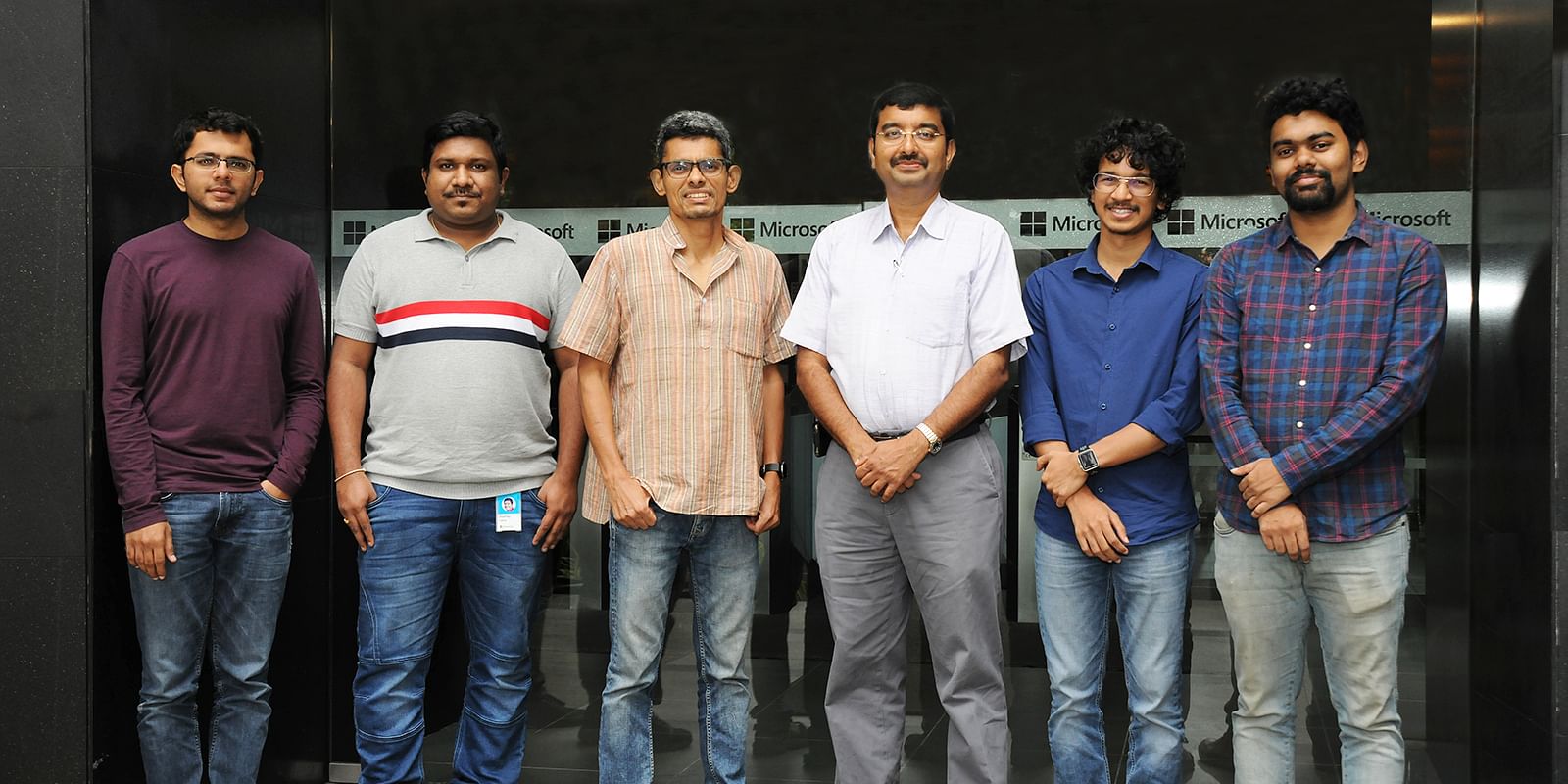Microsoft's AI-tech automates driver license tests in India
Project HAMS deploys unique smartphone-based technology at Regional Transport Office, Dehradun.
Microsoft Research, part of the American major Microsoft Group, has come out with a smartphone-based AI-powered automated driving test that ensures a fair and transparent test results. The project christened 'HAMS' (Harnessing AutoMobiles for Safety), is already being used by the Regional Transport Office (RTO) in Dehradun.
HAMS was originally conceived as a system to monitor drivers and their driving, with the aim of improving road safety. Microsoft says driver license testing is a pressing problem; for instance, a survey by SaveLife Foundation in India reports that a whopping 59 percent of the respondents did not give a test to obtain a driving license.
Venkat Padmanabhan, deputy MD, Microsoft Research India, who started the HAMS project in 2016 said: “The main challenge in the traditional driver’s license test is the burden placed on the human evaluators and the resulting subjectivity that a candidate faces. Automation using HAMS technology can not only help relieve evaluators of the burden but also make the process objective and transparent for candidates.”
Padmanabhan developed HAMS along with Akshay Nambi, who joined the project as an intern and is now a Senior Researcher at Microsoft Research India, and Satish Sangameswaran, Principal Program Manager, Microsoft Research India, who helped the team bring HAMS out of the research lab and into the real world through external partnerships.

The team behind HAMS at Microsoft Research India. L-R: Ishit Mehta, Research Fellow; Akshay Nambi, Senior Researcher; Satish Sangameswaran, Principal Research Program Manager; Venkat Padmanabhan, deputy MD; Vijay Lingam, Research Fellow; and Anurag Ghosh, Research Fellow.
The company says already one such partnership with the Institute of Driving and Traffic Research (IDTR), a joint venture between the Department of Transport of State Governments and Maruti Suzuki India, resulted in the implementation of HAMS as a unique smartphone-based driving test system for issuing driver’s licenses.
HAMS uses the smartphone’s front and rear cameras, and other sensors, to monitor the driver (for instance, their gaze) and the road scene in front (for instance, the distance to the vehicle in front), simultaneously. It employs advanced Artificial Intelligence (AI) models, which the team has developed for efficient and robust operation. For driving tests, HAMS has been customised to include capabilities such as precise tracking of the vehicle’s trajectory during designated test manoeuvres, for instance, parallel parking or negotiating a roundabout. This tracking enables HAMS to determine precisely, for instance, whether the driver stopped in the middle of a manoeuvre for longer than is permitted or tried to course correct by rolling forward and backward alternately more times than allowed.
Shailesh Bagauli, IAS, secretary, government of Uttarakhand said: “The successful deployment of the HAMS-based driver license testing at the Dehradun RTO is a significant step towards the Transport Department’s goal of providing efficient, world-leading services to the citizens of Uttarakhand. We are proud to be among the pioneers of the application of AI to enhance road safety.”
Akshay Nambi said: “On an average, over 50 candidates take the HAMS-enabled automated license test every day at the Dehradun RTO. Due to the comprehensive nature of testing, just about 50 percent candidates pass the test, ensuring that only qualified drivers are given a driver’s license.”
Microsoft says while some RTOs in India are already leveraging automation by deploying extensive infrastructure such as pole-mounted video cameras along the entire length of the test track, HAMS not only helps bring down the cost of automation significantly by obviating the need for such infrastructure, it also improves test coverage by providing a view within the vehicle. For instance, it checks whether the driver scanned their mirrors before effecting a lane change, and even more rudimentary, whether the person taking the test is the same as the one who registered for it.
To ensure transparency, in case of a disagreement on the test results, applicants have the option of viewing a video recording of their test drive, to know if the system treated them fairly.
Sriram Rajamani, MD, Microsoft Research India said: “At Microsoft Research India, we have been studying the role of technology in solving significant societal problems for over a decade now. The implementation of HAMS for driver license testing is a great example of the innovative use of AI to create transparent and efficient processes that ultimately help people, and improve road safety for all of us. I congratulate the Dehradun RTO and its administrators for being pioneers in this area.”
The company says the success of HAMS at the Dehradun RTO augurs well for its wider adoption, within the country and beyond, to ensure well-tested drivers enable better and safer roads everywhere.
RELATED ARTICLES
Cosmo First diversifies into paint protection film and ceramic coatings
The Aurangabad, Maharashtra-based packaging materials supplier is leveraging its competencies in plastic films and speci...
JSW MG Motor India confident of selling 1,000 M9 electric MPVs in first year
The 5.2-metre-long, seven-seater luxury electric MPV, which will be locally assembled at the Halol plant in Gujarat, wil...
Modern Automotives targets 25% CAGR in forged components by FY2031, diversifies into e-3Ws
The Tier-1 component supplier of forged components such as connecting rods, crankshafts, tie-rods, and fork bridges to l...






 By Autocar Professional Bureau
By Autocar Professional Bureau
 30 Oct 2019
30 Oct 2019
 16016 Views
16016 Views












